"Cherishing Little Steps - A Haven for Baby and Family Journeys"
Baby Shoes Newborn
Discover the perfect pair of baby shoes for your newborn that combines style, comfort, and safety.
In this informative article, we will explore the importance of baby shoes for newborns and provide valuable tips on choosing the right size, materials, and designs.
Whether you’re looking for soft booties or cute and stylish shoes, we’ve got you covered.
Learn when to start putting shoes on your newborn and how many pairs they actually need.
Get ready to find affordable, high-quality baby shoes that will keep your little one’s feet happy and protected.
Key Takeaways
- Baby shoes aid in proper foot development
- Soft soles mimic the feeling of being barefoot
- Baby shoes protect against rough surfaces and sharp objects
- Soft and comfortable booties are crucial for newborns’ comfort
The Importance of Baby Shoes for Newborns
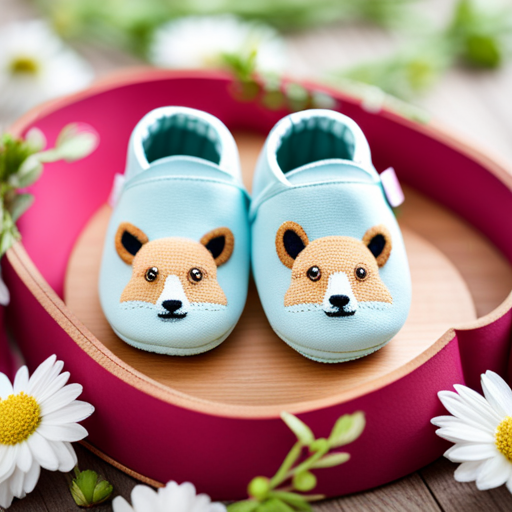
Why are baby shoes important for newborns?
Choosing the right style of baby shoes for newborns is crucial for their overall comfort and development. Baby shoes not only provide protection to their delicate feet but also aid in their proper growth.
One of the key benefits of using soft soled baby shoes for newborns is that they mimic the feeling of being barefoot. Soft soles allow the baby’s feet to move and flex naturally, promoting healthy foot development. This is especially important during the early stages when their feet are still fragile and developing.
Soft soled baby shoes also provide a layer of protection against rough surfaces, sharp objects, and extreme temperatures. They act as a barrier to prevent any harm or discomfort to the baby’s sensitive feet. Additionally, some baby shoes are designed with non-slip soles, ensuring stability and preventing accidents when the baby starts to crawl or take their first steps.
Moreover, baby shoes can be a fashion statement, allowing parents to dress their little ones in adorable and stylish footwear. This not only adds to the overall cuteness factor but also provides an opportunity for self-expression and creativity.
Choosing the Right Size for Newborn Baby Shoes

Selecting the appropriate size for newborn baby shoes is crucial to ensure optimal comfort and proper foot development. When it comes to baby shoes, there are various brands to choose from, each with their own sizing guidelines. It is important to consult the specific brand’s size chart to determine the best fit for your little one’s feet.
Baby shoe brands such as Nike, Adidas, and Converse offer a range of sizes for newborns. These brands are known for their quality and durability, ensuring that your baby’s feet are well-supported and protected.
In terms of popular shoe colors for newborns, soft pastel shades like light pink, baby blue, and mint green are commonly chosen. These colors are gentle and soothing, adding a touch of cuteness to your baby’s outfit. Additionally, neutral colors such as white, gray, and beige are also popular choices as they can easily match any outfit.
When selecting the right size for your newborn, it is important to consider their comfort and foot development. The shoes should provide enough room for their toes to wiggle freely and allow for natural movement. It is recommended to measure your baby’s feet regularly as they grow quickly during the first year.
Soft and Comfortable Booties for Newborns
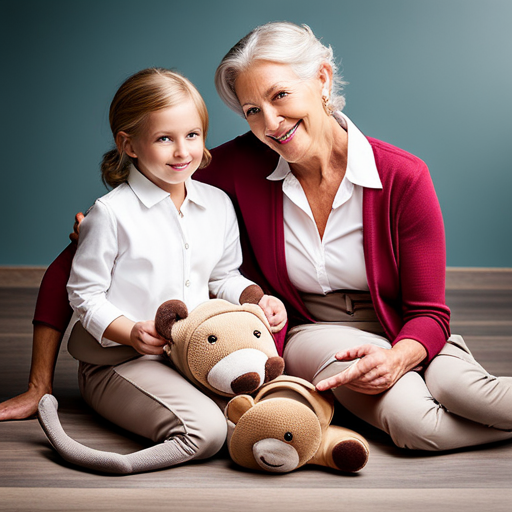
Manufacturers have ingeniously crafted soft and comfortably designed booties for newborns, ensuring that their delicate feet remain cozy and protected. These soft booties are made from high-quality materials that are gentle on a baby’s sensitive skin. They are designed with adjustable closures to provide a secure fit, preventing the booties from slipping off during playtime or naptime.
One important consideration when choosing soft booties for newborns is the appropriate baby shoe size. It is crucial to select booties that fit properly to avoid discomfort or restricted movement. To help parents determine the right size, manufacturers provide size charts that indicate the measurements for each shoe size. These charts typically include the length of the baby’s foot in inches or centimeters, as well as the corresponding shoe size.
To further assist parents in finding the perfect fit, here is a table showcasing the average measurements for soft booties based on baby shoe sizes:
| Baby Shoe Size | Foot Length (inches) | Foot Length (centimeters) |
|---|---|---|
| 0-3 | 3.5-3.75 | 8.9-9.5 |
| 3-6 | 3.75-4 | 9.5-10.2 |
| 6-12 | 4-4.5 | 10.2-11.4 |
Cute and Stylish Baby Shoes for Newborns
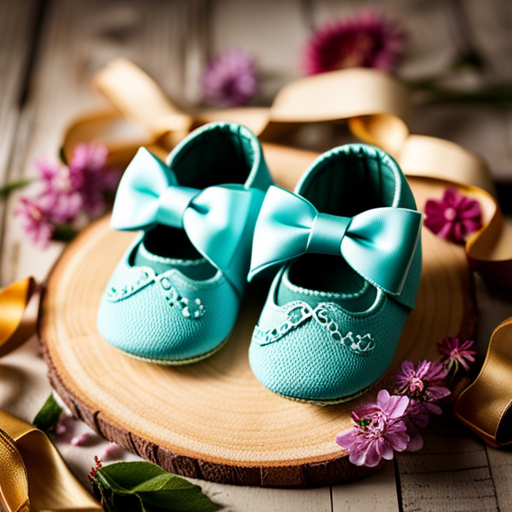
Parents can find a variety of cute and stylish baby shoes for newborns online and in stores. These shoes not only add a touch of fashion to your little one’s outfit but also provide comfort and protection for their delicate feet.
When it comes to stylish baby shoes, there are several popular baby shoe brands that offer a wide range of options. Here are four of them:
-
Robeez: Known for their soft-soled shoes, Robeez offers a collection of adorable and trendy designs. Their shoes are made from high-quality materials that ensure flexibility and support for your baby’s growing feet.
-
Stride Rite: Stride Rite is a well-known brand that focuses on providing shoes that are not only fashionable but also promote healthy foot development. With a variety of styles and sizes, they offer options suitable for every occasion.
-
Freshly Picked: This brand is known for its handmade leather moccasins that come in a range of vibrant colors and patterns. Their shoes are designed to stay on your baby’s feet while providing maximum comfort.
-
Nike: Nike offers a range of stylish baby shoes that combine fashion and functionality. Their shoes feature cushioned soles, breathable materials, and trendy designs, making them a popular choice among parents.
Whether you’re looking for cute booties, trendy sneakers, or stylish sandals, these popular baby shoe brands have got you covered. Remember to choose shoes that provide a comfortable fit and allow for natural movement to support your baby’s foot development.
The Best Material for Newborn Baby Shoes
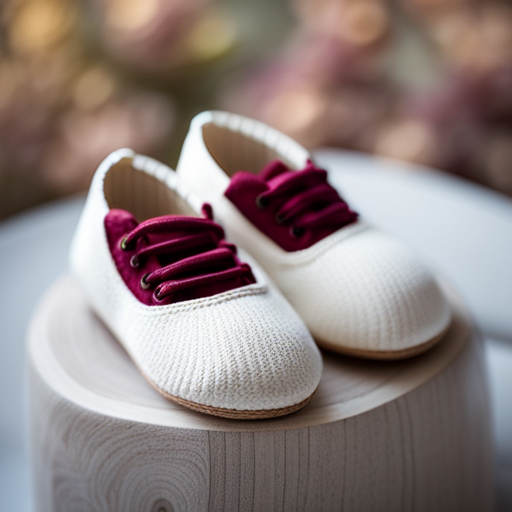
There are several factors to consider when determining the best material for newborn baby shoes, including their breathability, flexibility, and durability.
Newborn babies have delicate skin that is prone to irritation and discomfort, so it is crucial to choose materials that are gentle and breathable. Some of the best materials for newborn baby shoes are soft cotton, breathable mesh, and leather.
Soft cotton is a popular choice for newborn baby shoes due to its breathability and comfort. It allows air to circulate, preventing the baby’s feet from getting too hot and sweaty. Cotton is also soft and gentle on the baby’s skin, reducing the risk of irritation.
Breathable mesh is another excellent material for newborn baby shoes. It provides optimal ventilation, keeping the baby’s feet cool and dry. Mesh is lightweight and flexible, allowing for natural movement and promoting healthy foot development.
Leather is a durable material that provides excellent support and protection for a newborn’s feet. It is breathable, allowing air to flow and prevent moisture buildup. Leather is also flexible, allowing the baby’s feet to move naturally without restriction.
When choosing the best materials for newborn baby shoes, it is important to prioritize breathability, flexibility, and durability. These factors will ensure that the baby’s feet are comfortable, protected, and able to develop properly.
Tips for Keeping Newborn Baby Shoes Clean
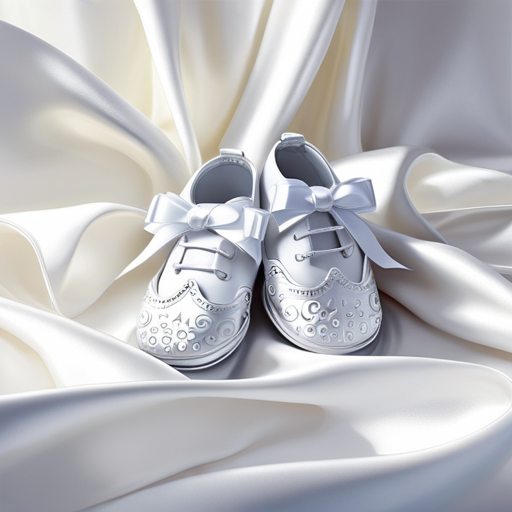
Regularly cleaning and gently scrubbing newborn baby shoes can help maintain their cleanliness and prevent the buildup of dirt and bacteria. Here are some tips for keeping your baby’s shoes clean and in good condition:
-
Remove dirt and debris: Before cleaning the shoes, remove any dirt or debris by gently tapping them together or using a soft brush. This will prevent the dirt from being spread around while cleaning.
-
Hand wash with mild detergent: Fill a basin with warm water and add a small amount of mild detergent. Gently scrub the shoes using a soft cloth or brush. Avoid using harsh chemicals or bleach as they can damage the material.
-
Air dry: After washing, rinse the shoes thoroughly and remove excess water. Place them in a well-ventilated area to air dry naturally. Avoid direct sunlight as it can fade the colors or cause damage to delicate materials.
-
Proper storage: When not in use, store your baby’s shoes in a clean and dry place. Avoid placing them on the floor or in a damp environment, as this can promote the growth of bacteria or mold.
Safety Considerations for Newborn Baby Shoes
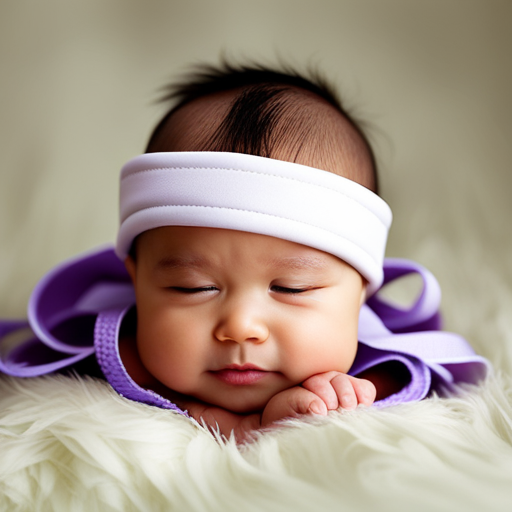
Adequate safety measures must be implemented in the design and construction of newborn baby shoes to ensure the protection and well-being of infants. When it comes to choosing shoes for newborns, safety features and proper fit are of utmost importance. Newborn babies have delicate feet that require special care and attention.
Safety features in newborn baby shoes include non-slip soles to prevent slips and falls, adjustable straps or elastic bands to ensure a secure fit, and soft materials that are gentle on the baby’s skin. It is crucial to choose shoes that are made from breathable materials to prevent overheating and sweating, which can lead to discomfort and skin irritation.
Proper fit is essential to avoid any potential harm or discomfort to the baby. Shoes that are too tight can restrict circulation and cause discomfort, while shoes that are too loose can pose a tripping hazard. It is recommended to measure the baby’s feet regularly as they grow rapidly during the first year. Additionally, choosing shoes with a wide toe box allows for natural foot development and movement.
When to Start Putting Shoes on Newborns

Parents often wonder when is the appropriate time to start putting shoes on their newborns, and the answer is typically ‘not until they start walking.’ While it may be tempting to adorn your baby’s tiny feet with cute shoes, there are several benefits to allowing them to go barefoot during their early months.
Here are four reasons why it is beneficial to let your newborn go shoeless:
-
Development of foot muscles: Going barefoot allows the feet to develop naturally, helping to strengthen the muscles and ligaments. This can lead to better balance and coordination as your baby grows.
-
Sensory stimulation: The soles of our feet are packed with nerve endings, and going barefoot allows babies to experience different textures and sensations. This sensory stimulation can enhance their overall sensory development.
-
Proper foot growth: Shoes can restrict the natural growth and movement of a baby’s feet. Allowing them to go barefoot allows their feet to grow in a healthy and unrestricted manner.
-
Improved stability and posture: Going barefoot helps babies develop a strong foundation for their posture and stability. It allows them to feel the ground beneath their feet and adjust accordingly, promoting better balance and coordination.
How Many Pairs of Baby Shoes Does a Newborn Need
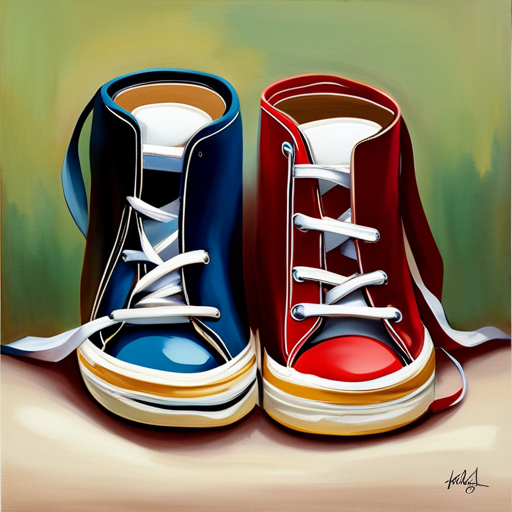
While newborns do not necessarily need multiple pairs of shoes, having a few pairs of soft, flexible shoes can be beneficial for protecting their feet in certain situations. When it comes to choosing the perfect baby shoes for newborns, there are a few important factors to consider.
First and foremost, the shoes should be made of soft, breathable materials that allow for natural movement and growth of the baby’s feet. Look for shoes that have a wide toe box to allow for proper toe splay and development. Additionally, it is important to choose shoes that have a flexible sole, as this allows for better balance and coordination when the baby starts to walk.
However, it is worth mentioning that the benefits of barefoot walking for newborns should not be overlooked. Walking barefoot allows the baby to develop a strong foundation of muscles in their feet, which is crucial for their overall foot health. It also helps to stimulate their sensory development and allows them to feel and experience different textures and surfaces. Therefore, it is recommended to let your newborn spend some time without shoes and encourage them to explore their environment barefoot whenever it is safe to do so.
Affordable and High-Quality Baby Shoes for Newborns
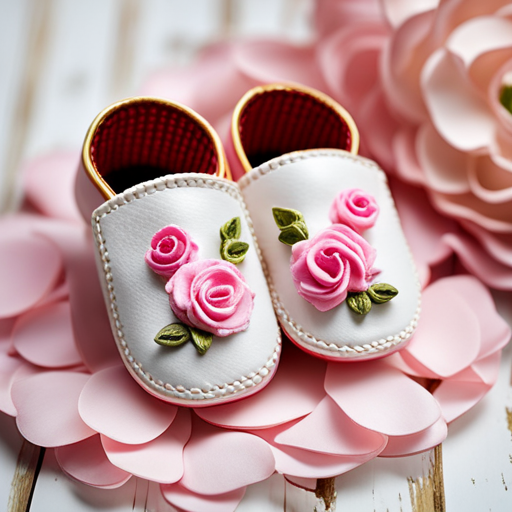
Our team is currently researching ways to cut costs without compromising the quality of baby shoes for newborns. We understand that providing affordable yet high-quality baby shoes is essential for parents who want the best for their little ones.
Here are four strategies we are considering:
-
Material selection: By carefully selecting durable yet cost-effective materials, we can reduce production costs without compromising the quality and comfort of the shoes. We are exploring options such as soft, breathable fabrics and non-toxic, eco-friendly materials.
-
Streamlined production process: By optimizing our manufacturing process, we can minimize waste, reduce labor costs, and ultimately offer more affordable baby shoes. This includes efficient material sourcing, improved machinery, and better inventory management.
-
Direct-to-consumer sales: By eliminating middlemen and selling directly to consumers, we can cut down on distribution costs and offer more competitive prices. This approach also allows us to establish a stronger connection with our customers and better understand their needs.
-
Collaborative partnerships: We are exploring partnerships with suppliers and manufacturers who share our commitment to affordability and quality. By leveraging these partnerships, we can negotiate better prices for materials and streamline the production process further.
Through these strategies, our aim is to provide affordable baby shoes without compromising on the quality and safety that newborns deserve. We believe that every baby deserves comfortable and well-made shoes, and we are dedicated to making that a reality for all parents.
Frequently Asked Questions
Can Newborns Wear Socks Instead of Shoes?
Newborns can wear socks instead of shoes as their feet are still developing. In fact, allowing babies to go barefoot or wear soft, flexible socks can promote healthy foot development and improve balance and coordination.
How Often Should I Clean My Newborn’s Shoes?
Cleaning newborn shoes is an essential task for maintaining hygiene and ensuring the well-being of your baby. Regular cleaning, preferably on a weekly basis, using mild soap and warm water, is recommended. Proper drying and storage are also crucial to prolong their lifespan.
Are There Any Safety Features to Look for in Newborn Baby Shoes?
When considering safety features in newborn baby shoes, it is important to look for products that meet established safety standards. Additionally, selecting the appropriate shoe size, as recommended by experts, can help ensure a secure and comfortable fit for your baby.
Should I Wait Until My Baby Starts Walking to Buy Their First Pair of Shoes?
It is generally recommended to wait until a baby starts walking before purchasing their first pair of shoes. This allows their feet to develop naturally and strengthens the muscles. However, there are benefits and tips to consider when choosing baby shoes.
How Do I Know if the Baby Shoes I’m Buying Are Made From Safe Materials?
When purchasing baby shoes, it is crucial to ensure they are made from safe materials. To determine this, research reputable brands known for using non-toxic materials and consider the baby shoe size for a proper fit.
Conclusion
In conclusion, choosing the right baby shoes for newborns is crucial for their comfort and safety.
It is important to select soft and comfortable booties made from the best materials. Safety considerations should always be taken into account, and shoes should only be worn when necessary.
While it is cute to have stylish baby shoes, it is essential to prioritize comfort and fit.
By ensuring these factors, parents can provide their newborns with affordable and high-quality shoes for their early stages of development.



I like this site it’s a master piece! Glad I noticed this
ohttps://69v.topn google.Raise blog range